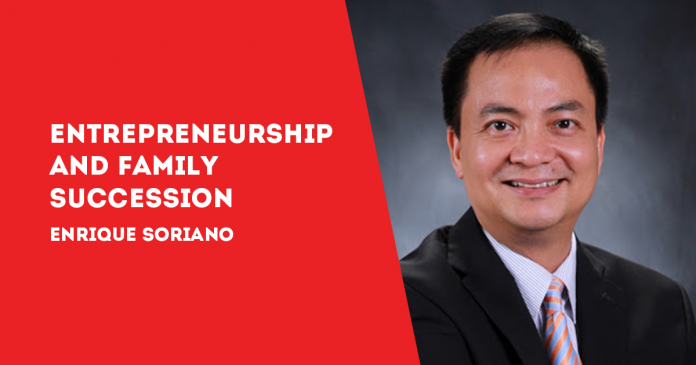
By Prof. Enrique Soriano
FAMILY-OWNED businesses are distinct entities, often confronted with the intricate task of balancing cherished family values, traditions, and unity with the rigorous demands of running a thriving enterprise.
In my previous article, I underscored the essential role of founders and business leaders in setting the stage for professionalism. Today, we delve into a pivotal decision that family businesses must make – the choice between adopting a “family first” model or a “business first” model for governance.
This choice significantly shapes the dynamics within the family and the enduring prosperity of the business. In this article, we will explore the defining attributes of each model and provide insights to aid you in making the right decision for your family enterprise.
The ‘Family First’ Model
In a “family first” model, the central focus lies in preserving and fortifying family relationships. Below are some key characteristics of this model:
1. Senior Management is Exclusive to Family: In many family businesses found in Asia, leadership is based on blood rather than ability, leading to less qualified family members taking on pivotal roles. Birthright and seniority within the family may be more valued than skill or competence, potentially hindering the business’s performance and growth.
2. Mixing Personal and Business Funds: Using business funds for personal expenses blurs the line between personal and company finances, possibly leading to financial instability. This practice can erode the financial health of the business and jeopardize its long-term sustainability.
3. Equal Compensation: Offering equal compensation to family members regardless of their roles or contributions can demotivate high-performing individuals. It may also lead to resentment among those who feel they are not adequately rewarded for their efforts.
4. Your last name is your Birthright: Offering jobs to family members without considering their qualifications can result in underqualified individuals holding significant positions. This can adversely affect the company’s performance, efficiency, and competitiveness.
5. Conflict Avoidance: Emphasis is placed on family harmony. The family’s well-being and happiness take precedence. Avoiding conflict might maintain short-term harmony but can lead to unaddressed issues, which may fester and cause larger problems in the future. Poor communication and unresolved conflicts can hinder decision-making and stifle innovation within the business.
6. Shared Values and Legacy: Family traditions, values, and the legacy of the business are paramount. Decisions are guided by the desire to preserve and pass on these values to future generations.
7. Long-Term Sustainability: This model often prioritizes the long-term sustainability of the business over short-term financial gains. The family is willing to invest in the business to secure its future.
8. Collaborative Decision-Making: Family members work together to make important decisions, and consensus is often sought to ensure everyone’s voice is heard.
The ‘Business First’ Model
This model prioritizes the success and growth of the business. And family relationships and emotion are set aside for the greater good.
1. Business First: In a “Business First” approach, family and business matters are never allowed to intertwine. The best interests of the business always take center stage, nurturing a thriving enterprise.
2. Meritocracy is Paramount: Family members and stakeholders understand the clear distinction between familial roles and business responsibilities. Leadership is not simply bestowed based on lineage but is earned through competence and merit. The business is passed on to the most capable individuals, and external talent is considered when needed.
3. Separation of Personal and Business Funds. Maintaining a clear separation between personal and business finances is a cardinal rule. The cash flow generated by the business is used for reinvestment to drive growth and value. Family members do not siphon off resources for personal use.
4. Professionalism: The family operates the business like any other, with a focus on professional management, clear roles, and performance-based evaluations. And family members are treated in the same manner as non-family executives. (To be continued)
***
Seeking to shelter yourself from the perils of nepotism?
Discover the crucial secrets of harmonizing tradition and progress — or prioritizing whichever is best for your family business — before time runs out and your legacy suffers from the worst possible scenario.
Join us on Dec. 2 for an absolute must-attend webinar, “The Family-First vs. Business-First Dilemma” and safeguard your family’s future success! Reserve your seat now c/o Pat at rplatorre@wbadvisoryasia.com. Don’t let this opportunity slip away!/PN







